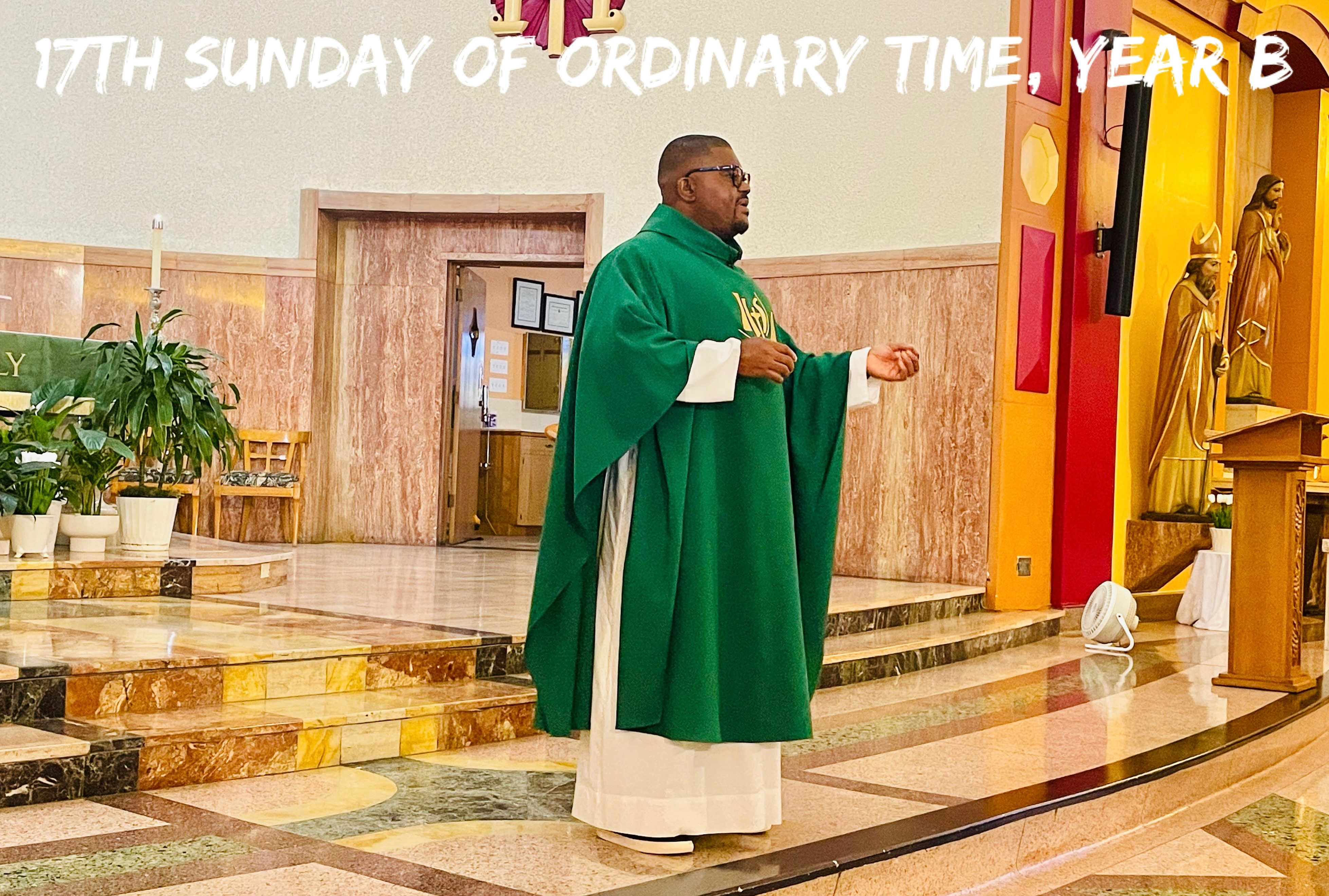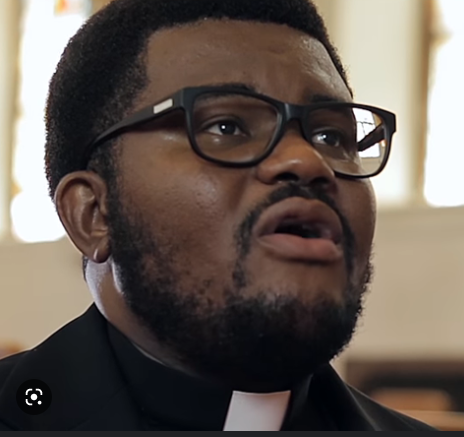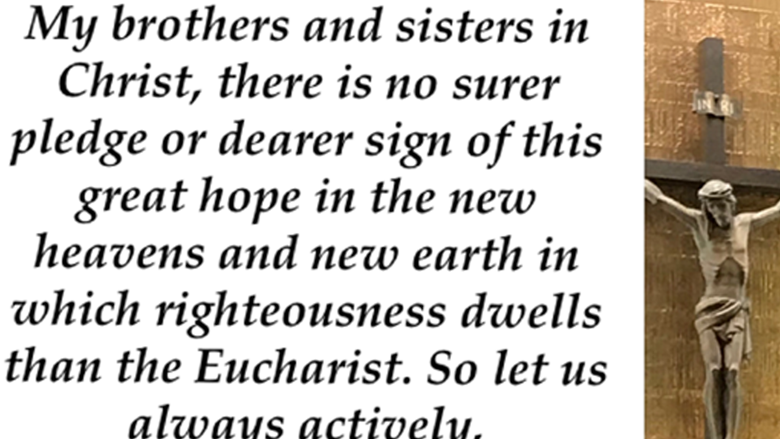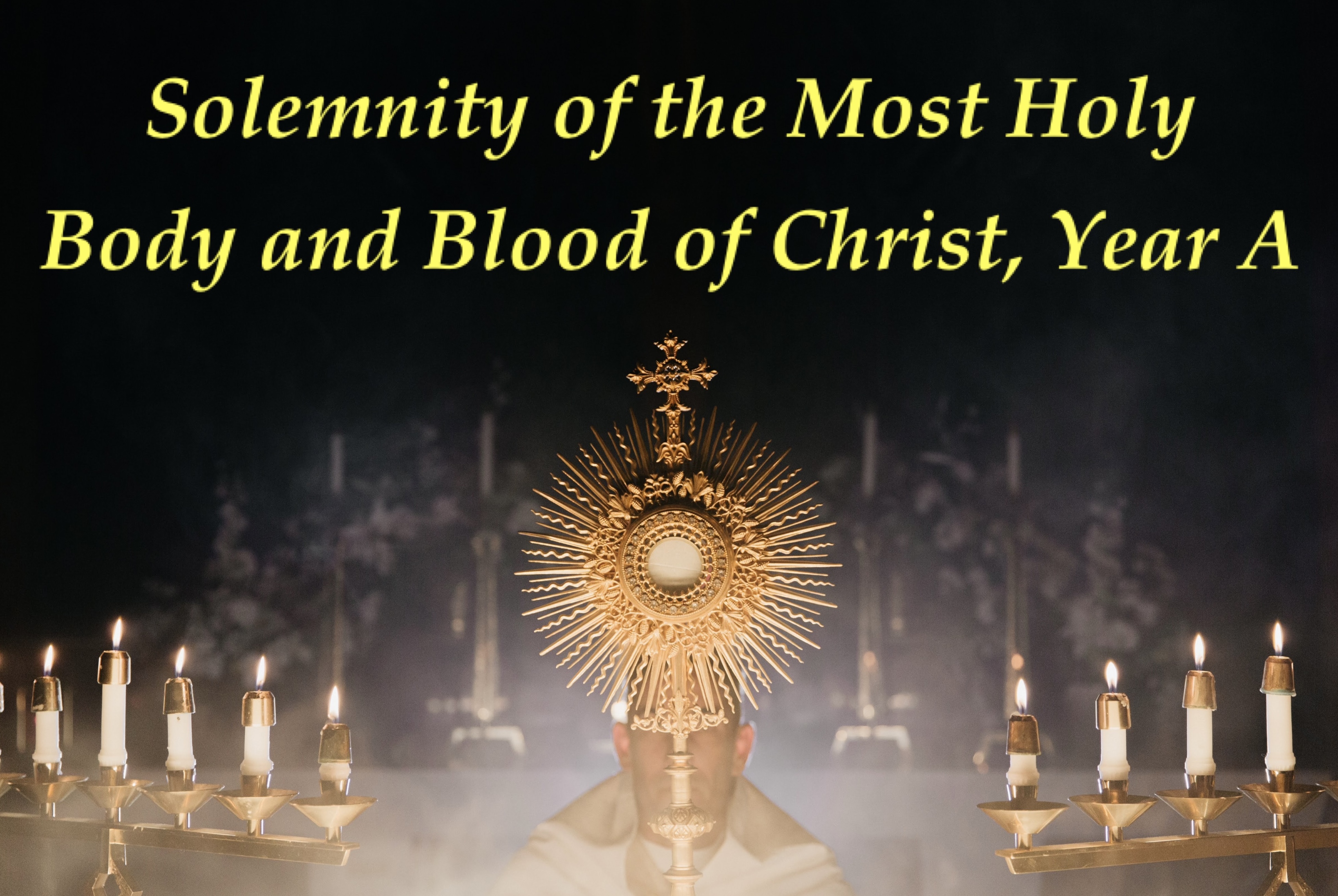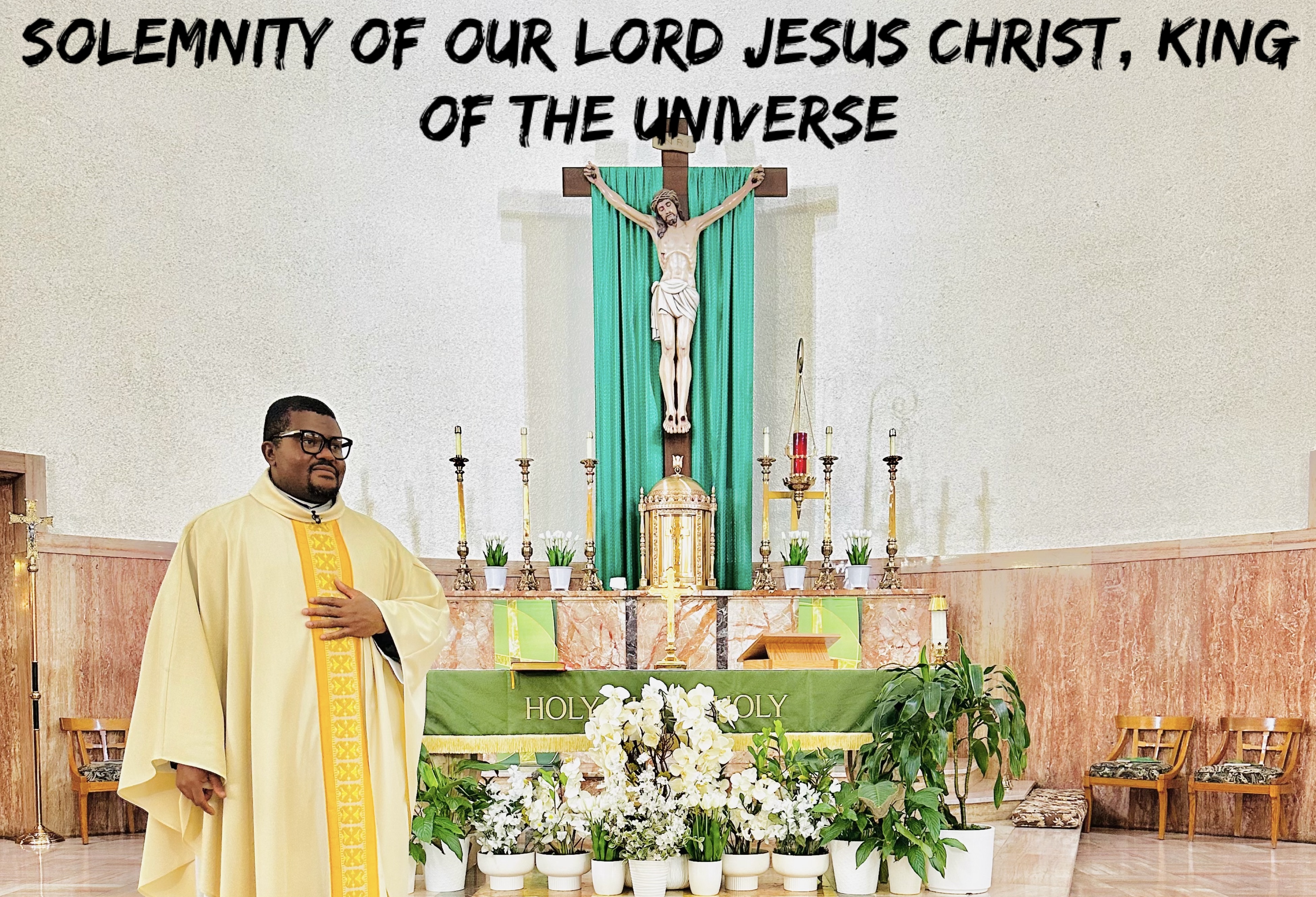17th Sunday of Ordinary Time, Year B
It is in fact an act of God that our readings today all talk about the Eucharist and its importance in our lives as Catholic Christians especially with the recent caricature of the Last Supper of Jesus at the 2024 Olympics in Paris, France. In our first reading from the second Book of Kings, chapter 4, verse 42 to 44, prefiguring the Holy Eucharist, God feeds a hundred people with twenty barley loaves made from the firstfruits, and fresh grain in the ear through Elisha the prophet and when they had eaten, there was some left over, as the LORD had said. In the second reading, from the Letter of Saint Paul to the Ephesians, chapter 4, verse 1 to 6, Saint Paul urges us to live in a manner worthy of the call we have received, with all humility and gentleness, with patience, bearing with one another through love, striving to preserve the unity of the spirit through the bond of peace: one body and one Spirit, as we were called to in one Lord, one faith, one baptism; one God and Father of all, who is over all, and through all and in all as emphasized in the Holy Eucharist. Then in our gospel reading from the holy Gospel according to John, chapter 6, verse 1 to 15, Jesus feeds the large crowd with five barley loaves and two fish, prefiguring the Holy Eucharist and its purpose in our lives as Christians.
So what is the Eucharist? Who is the Eucharist for? What does the Eucharist comprise of? Who can receive the Eucharist and Why do we receive the Eucharist? These questions can be answered with the teachings of Catholic Church as contained in the Catechism of the Catholic Church and from the document “The Mystery of the Eucharist in the Life of the Church” developed by the Committee on Doctrine of the United States Conference of Catholic Bishops.
WHAT IS THE EUCHARIST? The term “Eucharist” originates from the Greek word “eucharistia,” which means “thanksgiving.” The Eucharist is the source and summit of the Christian life. The other sacraments, and indeed all ecclesiastical ministries and works of the apostolate, are bound up with the Eucharist and are oriented toward it. For in the blessed Eucharist is contained the whole spiritual good of the Church, namely Christ himself, our Pasch. The Eucharist is the efficacious sign and sublime cause of that communion in the divine life and that unity of the People of God by which the Church is kept in being. It is the culmination both of God's action sanctifying the world in Christ and of the worship men offer to Christ and through him to the Father in the Holy Spirit. The Eucharist is the memorial of Christ's Passover, that is, of the work of salvation accomplished by the life, death, and resurrection of Christ, a work made present by the liturgical action. As sacrifice, the Eucharist is also offered in reparation for the sins of the living and the dead and to obtain spiritual or temporal benefits from God. Hence, the Eucharist is thanksgiving and praise to the Father; the sacrificial memorial of Christ and his Body; the presence of Christ by the power of his word and of his Spirit. Finally, by the Eucharistic celebration we already unite ourselves with the heavenly liturgy and anticipate eternal life, when God will be all in all. In brief, the Eucharist is the sum and summary of our faith: Our way of thinking is attuned to the Eucharist, and the Eucharist in turn confirms our way of thinking.
WHO IS THE EUCHARIST FOR? The Eucharist is for us. The Lord, having loved those who were his own, loved them to the end. Knowing that the hour had come to leave this world and return to the Father, in the course of a meal he washed their feet and gave them the commandment of love. In order to leave them a pledge of this love, in order never to depart from his own and to make them sharers in his Passover, he instituted the Eucharist as the memorial of his death and Resurrection, and commanded his apostles to celebrate it until his return; thereby he constituted them priests of the New Testament. The celebration of the Eucharistic sacrifice is wholly directed toward the intimate union of the faithful with Christ through communion. To receive communion is to receive Christ himself who has offered himself for us. The Eucharist is the heart and the summit of the Church's life, for in it Christ associates his Church and all her members with his sacrifice of praise and thanksgiving offered once for all on the cross to his Father; by this sacrifice he pours out the graces of salvation on his Body which is the Church.
WHAT DOES THE EUCHARIST COMPRISE OF? The liturgy of the Eucharist unfolds according to a fundamental structure which has been preserved throughout the centuries down to our own day. It displays two great parts that form a fundamental unity: - the gathering, the liturgy of the Word, with readings, homily and general intercessions; - the liturgy of the Eucharist, with the presentation of the bread and wine, the consecratory thanksgiving, and communion. The liturgy of the Word and liturgy of the Eucharist together form "one single act of worship"; the Eucharistic table set for us is the table both of the Word of God and of the Body of the Lord. The Eucharistic celebration always includes: the proclamation of the Word of God; thanksgiving to God the Father for all his benefits, above all the gift of his Son; the consecration of bread and wine; and participation in the liturgical banquet by receiving the Lord's body and blood. These elements constitute one single act of worship. In the celebration of the Eucharist, bread and wine become the Body and Blood of Jesus Christ through the power of the Holy Spirit and the instrumentality of the priest. The whole Christ is truly present -- body, blood, soul, and divinity -- under the appearances of bread and wine, the glorified Christ who rose from the dead. This is what the Church means when she speaks of the "Real Presence" of Christ in the Eucharist. Remember, the transformed bread and wine are truly the Body and Blood of Christ and are not merely symbols. When Christ said “This is my body” and “This is my blood,” the bread and wine are transubstantiated. Though the bread and wine appear the same to our human faculties, they are actually the real body and blood of Jesus.
WHO CAN RECEIVE THE EUCHARIST? Only Catholic Christians who have gone through the religious education program to receive the Eucharist can receive it. Also, any Catholic Christian who desires to receive Christ in Eucharistic communion must be in the state of grace. If they are aware of having sinned mortally, they must not receive communion without having received absolution in the sacrament of penance.
WHY DO WE RECEIVE THE HOLY EUCHARIST? Jesus gives himself to us in the Eucharist as spiritual nourishment because he loves us. By eating the Body and drinking the Blood of Christ in the Eucharist, we become united to the person of Christ through his humanity. "Whoever eats my flesh and drinks my blood remains in me and I in him,” said Jesus in John chapter 6, verse 56. In being united to the humanity of Christ, we are at the same time united to his divinity. Our mortal and corruptible natures are transformed by being joined to the source of life. Also, we receive the Eucharist because Communion with the Body and Blood of Christ increases the communicant's union with the Lord, forgives their venial sins, and preserves them from grave sins. Since receiving this sacrament strengthens the bonds of charity between the communicant and Christ, it also reinforces the unity of the Church as the Mystical Body of Christ.
So my brothers and sisters, let us always participate prayerfully and actively in the celebration of the Eucharist because true and authentic participation in the Holy Sacrifice of the Mass, identifies us with Jesus’s Heart, sustains our strength along the pilgrimage of this life, makes us long for eternal life, and unites us even now to the Church in heaven, the Blessed Virgin Mary, and all the saints.

